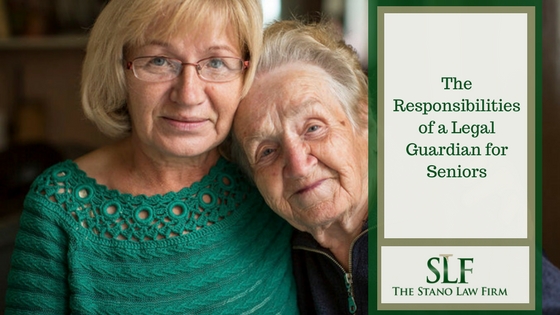When you have a senior loved one who is no longer able to care for themselves, there comes a time when a choice has to be made. Nobody likes the idea of placing their mom or dad into a home, and it may be tough to trust an in-home caregiver. If this is the case, your best option is to consider elderly guardianship.
Also called conservatorship, this is a position created by courts where they appoint someone to see to the needs of an elderly person who cannot provide for themselves. This kind of position, however, can carry a great deal of responsibility and it’s something to carefully consider before jumping in. Learn the responsibilities of elderly guardianship, how the process works, and what you’ll need to do to be sure your loved ones are properly cared for.
Overview of Elderly Guardianship
When an elderly person becomes unable to care for themselves, whether it’s the inability to remember when they need to take medications, basic hygiene, or manage their bills and finances, it’s important for someone to step in to handle these basic needs. In these cases, the courts will appoint someone to serve as a guardian for that person.
Elderly guardianship or elderly conservatorship is not much different from guardianship of a minor, but it can take some time and effort to go through the process.
The Process of Guardianship
In order to begin the process of guardianship, someone must apply for guardianship. The senior in need of guardianship can nominate a candidate if they are able. Others who can put forth an application include their spouse, domestic partner, relatives, friends, or even state and local government entities.
There are essentially four steps, the first being filing a petition for appointing a conservator, followed by letting the elderly person know about the petition, then undergoing an investigation by the court to determine the necessity of guardianship, and finally, a hearing where a judge will hear all of the evidence and statements, and make a final determination.
Responsibilities of Elderly Guardianship
The responsibilities of elderly guardianship are many. As a guardian, your elderly conservatorship binds you to an overall duty of care towards the person for whom you’re caring. This means that you must put their interests first in all things. You could be called upon to:
- Determine where they will live
- See to their medical and healthcare needs
- Arrange for social contact and recreation
- Budget and handle their finances
- Ensure their hygienic needs are met
Other Alternatives
The process of guardianship can be very expensive and stressful, and you should be certain you can handle the stresses before taking it on. There are other alternatives, such as living trusts, powers of attorney and more which allow the division of responsibilities. The best choice may come with the help of an elder law attorney. If you’re in Cuyahoga County, OH, and you have questions about the responsibilities of elderly guardianship, call Stano Law for a consultation today, and let us help you through the process.








Leave A Comment